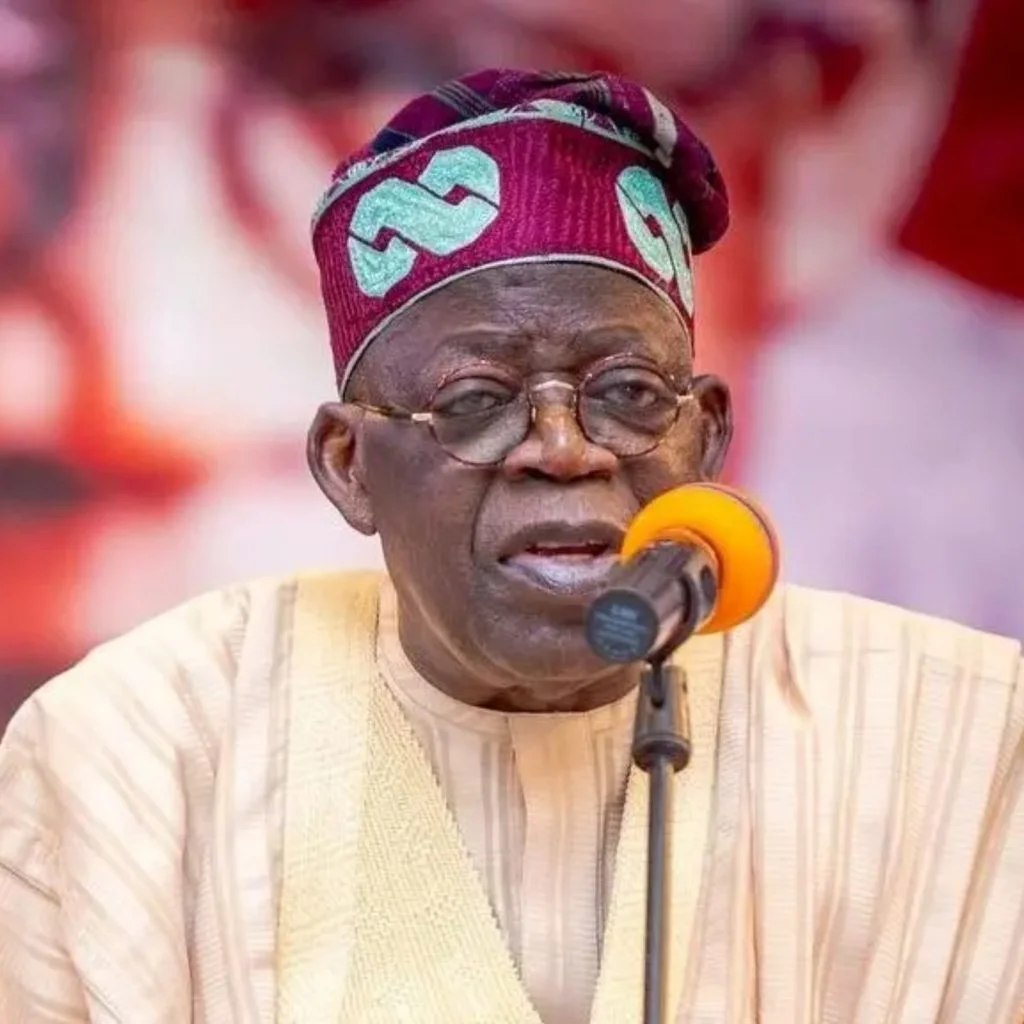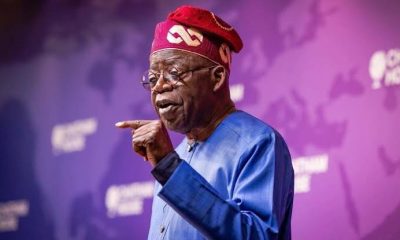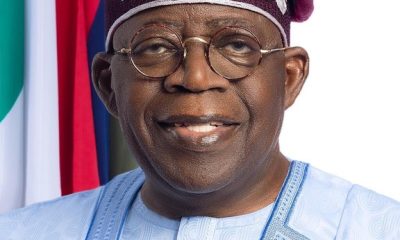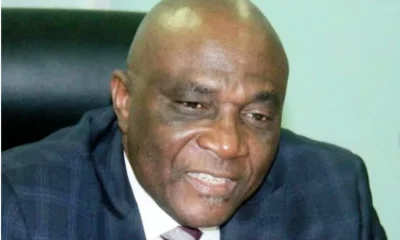Headline
President Tinubu Meets Oil Marketers Over Subsidy Removal

President Bola Tinubu has directed the National Economic Council (NEC) led by Vice President Kashim Shettima to device an approach and begin the process of working on interventions to mitigate the impact of subsidy removal on the Nigerians.
Governor of Ogun State, Dapo Abiodun, stated this after leading some major oil marketers on a courtesy visit to the President at the State House in Abuja.
Addressing correspondents after the meeting, Abiodun, who was a former chairman of the oil marketers association, stated that the marketers expressed solidarity with the President for removing the N4trn subsidy burden, a move that can enhance the Federation Account Allocation Committee (FAAC) allocation to states.
The group of marketers subsequently announced their intention to donate to 50 to 100, fifty-seater mass transit buses that would run on CNG, costing a N100m each and N10bn cumulatively, to cushion the effect of the removal within the next 30 days.
They are hoping other corporate bodies can emulate their action.
The President’s meeting with the oil marketers comes amid the controversy and protests trailing the removal of subsidy on Premium Motor Spirit known as petrol.
The President during his inaugural speech on May 29 at the Eagle Square in Abuja had announced the removal of subsidy payment on petrol. The President said that the immediate past administration of Muhammadu Buhari did not make provisions for subsidy in the 2023 budget beyond June.
Many Nigerians had expected that the new price regime would come into effect by July 1 but almost immediately after the presidential pronouncement, queues resurfaced at filling stations across the country even as retail outlets hoard the product and increase prices.
Already, a litre of petrol is being sold at over N500 across the country following NNPC price adjustment and the presidential pronouncement on subsidy removal.
Fuel queues have since surged for the vital commodity, compounding the traffic situation in parts of the country, even as transportation cost skyrocket to more than 100% increment.
The Organised Labour had resolved to embark on a nationwide strike beginning Wednesday but was restrained by a court order of Monday, June 5, 2023. The Organised Labour subsequently shelved its planned strike after a meeting with the Federal Government late Monday.
Headline
Fagbemi warns against obstructing EFCC from performing its lawful duty

The Minister of Justice, Lateef Fagbemi, SAN has warned against obstructing the Economic and Financial Crimes Commission (EFCC) from carrying out its lawful duty .
Fagbemi’s warning is contained in a statement in Abuja.
“This is a matter of very grave concern, it is now beyond doubt that the EFCC is given power by the law to invite any person of interest to interact with them in the course of their investigations into any matter, regardless of status.
“Therefore, the least that we can all do when invited, is not to put any obstruction in the way of EFCC, but to honourably answer their invitation.
“A situation where public officials who are themselves subject of protection by law enforcement agents will set up a stratagem of obstruction to the civil and commendable efforts of the EFCC to perform its duty is to say the least, insufferably disquieting’’.
He added that running away from the law will not resolve issues at stake but only exacerbate them.
“Nigeria has a vibrant judicial system that is capable of protecting everyone who follows the rule of law in seeking protection.
“I therefore encourage anyone who has been invited by the EFCC or any other agency to immediately toe the path of decency and civility by honouring such invitation instead of embarking on a temporising self-help and escapism.
“This can only put our country in bad light before the rest of the world’’.
He said institutions of state should be allowed to function effectively and efficiently.
“I stand for the rule of law and will promptly call EFCC, and indeed any other agency to order when there is an indication of any transgressions of the fundamental rights of any Nigerian by any of the agencies’’.
NAN reports that the EFCC had on Wednesday warned members of the public that it was a criminal offence to obstruct officers of the Commission from carrying out their lawful duties.
Section 38(2)(a(b) of the EFCC Establishment Act makes it an offence to prevent officers of the Commission from carrying out their lawful duties. Culprits risk a jail term of not less than five years.
The warning , the EFCC said, became necessary against the background of the increasing tendency by persons and groups under investigation by the Commission to take the laws into their hands by recruiting thugs to obstruct lawful operations of the EFCC.
On several occasions, the anti graft agency said, operatives of the Commission have had to exercise utmost restraint in the face of such provocation to avoid a breakdown of law and order.
Headline
Unknown Gunmen Abduct Channelstv Reporter In Port-harcourt

Some unknown gunmen have kidnapped Joshua Rogers, the ChannelsTV reporter in Port-Harcourt, the Rivers State capital.
Politics Nigeria learnt that Rogers was picked up close to his residence at Rumuosi in Port Harcourt and to an unknown destination by the gunmen around 9pm on Thursday, April 11.
The reporter was driving his official ChannelsTV branded car when the hoodlums accosted, pointed a gun at him and took him away in the same vehicle.
Rogers was said to be returning from his official assignment in Government House after a trip to Andoni for a government event when the incident happened.
Already, the gunmen were said to have contacted his wife and demanded a N30million ransom for bis release.
His cameraman confirmed the incident and appealed to his abductors to set him free unconditionally.






















